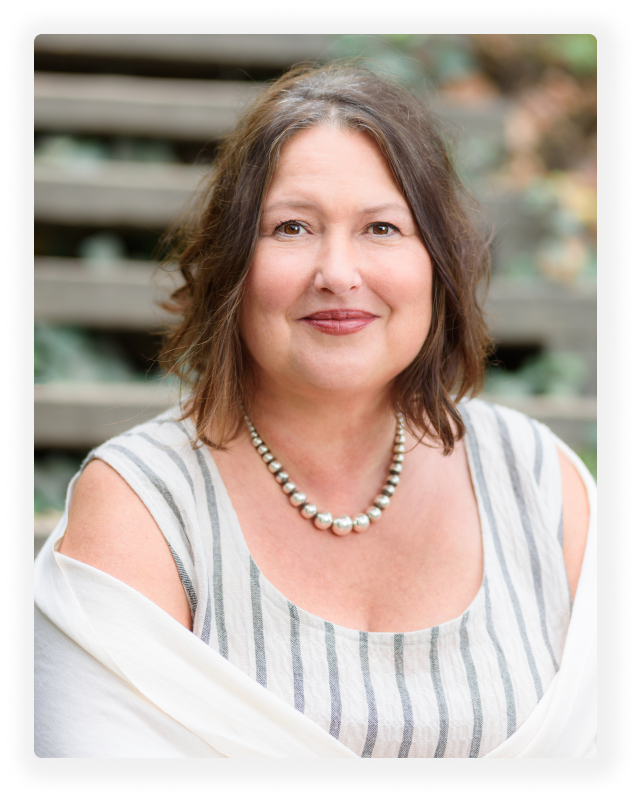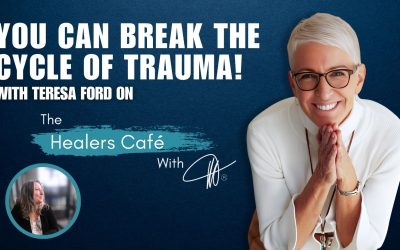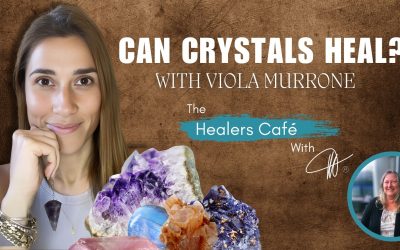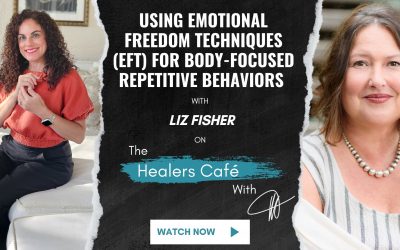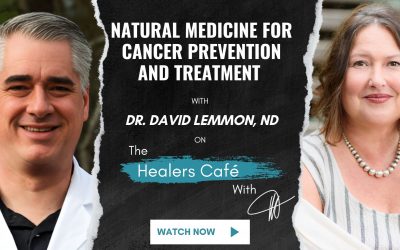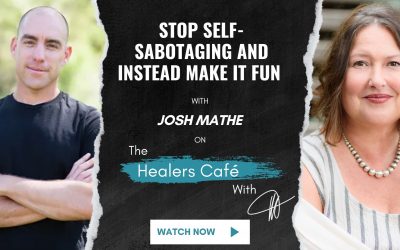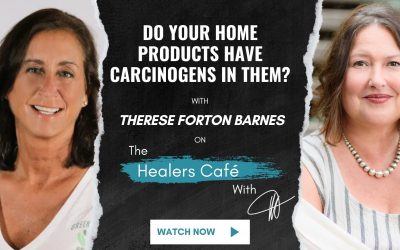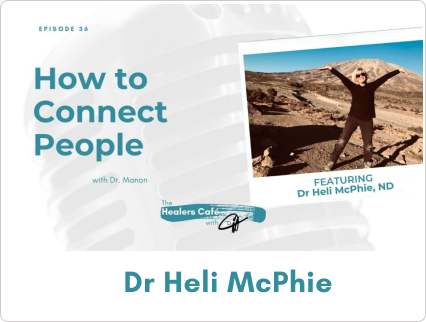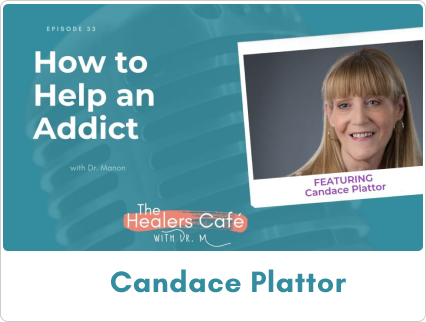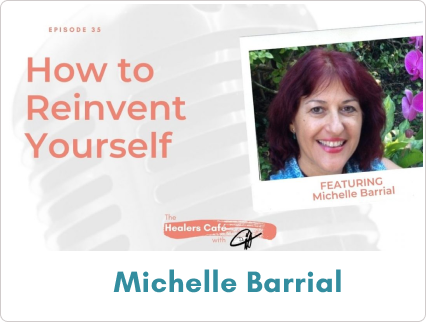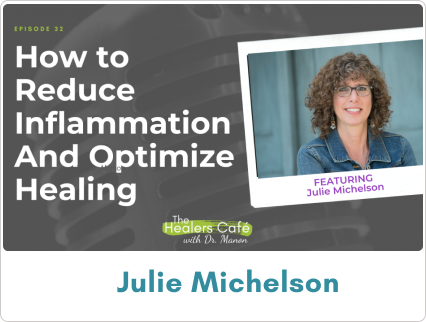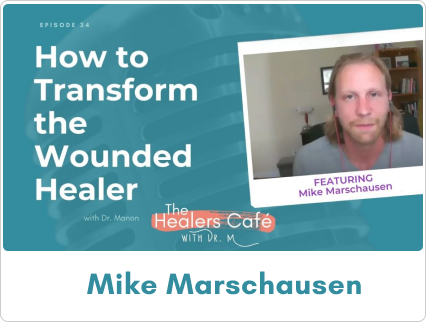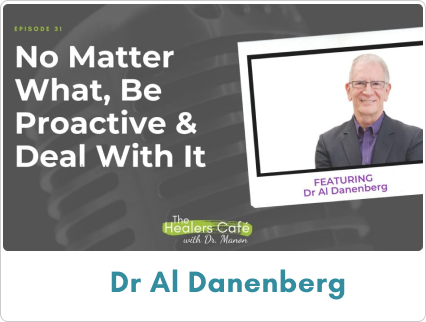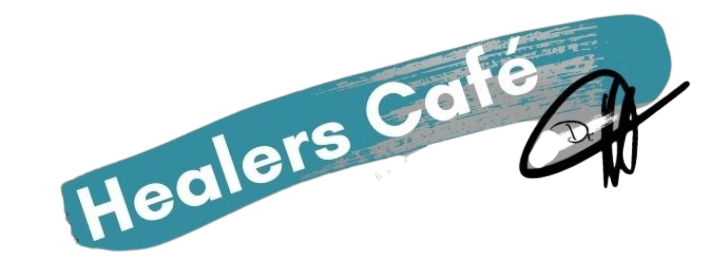
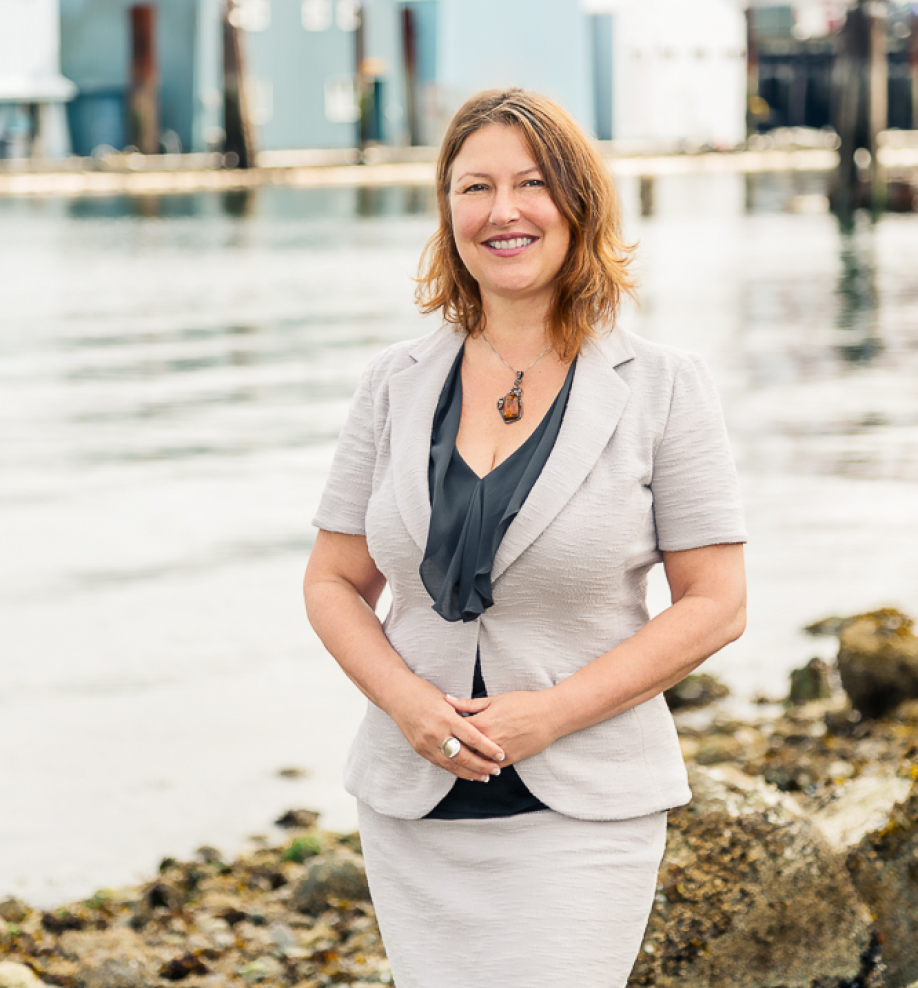
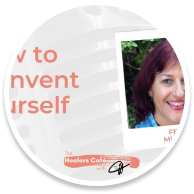
Michelle Barrial
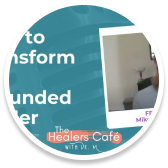
Mike Marschausen
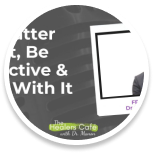
Dr Al Danenberg
iTunes | Google Play | Spotify, | Libsyn | iHeartRadio | Gaana | The Healers Cafe | Radio.com | and many more
FEATURED INTERVIEWS
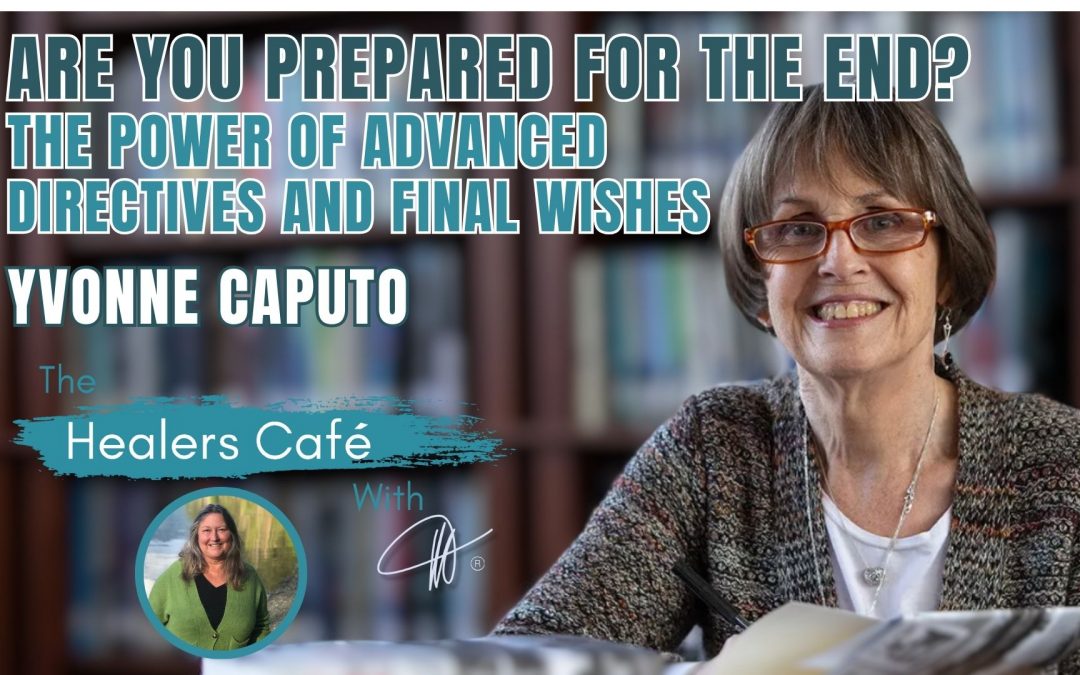
Yvonne Caputo
Are You Prepared for the End? The Power of Advanced Directives and Final Wishes – Yvonne Caputo on The Healers Café
In this episode of The Healers Café, Manon Bolliger, FCAH, RBHT, speaks with Yvonne Caputo about the transformative impact of discussing and documenting end-of-life wishes, including the use of Advanced Directives and the Five Wishes document, to ensure a peaceful and personalized passing.
Highlights from today’s episode include:
Yvonne Caputo 07:13
It was such an indication to me about how much my father trusted me to do what he asked. You know, there was this bond, there was this trust, and that was his gift to me. You know, so do I grieve my father’s loss? Absolutely!
Manon Bolliger 13:25
I lost my mom a couple of years ago, and she really did exactly…she died exactly how she wanted to. And, I mean, we had it down to even the obituary. She wanted to write it so it would say exactly what she wanted it, you know.
– – – – –
– – – – –
Yvonne Caputo 20:10
This is about you. This is about how you would like things to be. And she did that, and she said she sat down with her daughter, and they went over the document. She said it was one of the closest, loving, moving times of her life with that child,
ABOUT YVONNE CAPUTO
Yvonne Caputo has been a teacher. She taught in the Erie Pennsylvania Public Schools for 18 years. She has also been the Vice President of Human Resources at a retirement community, a corporate trainer and consultant, and a psychotherapist. She has a master’s degree in education and clinical psychology.
Her book, Flying with Dad, is a story about her relationship with her father through his telling of World War II stories. Her second book, Dying with Dad shares how she and her dad had tough conversations about what he wanted in the end.
She has always been a storyteller. She has used stories to widen students’ eyes and soften clients’ pain, and her stories have earned her rave reviews as a presenter and speaker.
Yvonne lives in Pennsylvania with her best friend, who is also her husband. Together they have three children, three grandchildren, and a bernedooodle.
Core purpose/passion: I am now deliciously semi-retired. In that time, I have written two books, Flying with Dad and Dying with Dad. In the latter I talk about the conversations I had with my father about death and dying. We made those conversations legal, and I spoke for him when he could no longer speak for himself.
ABOUT MANON BOLLIGER, FCAH, RBHT
As a recently De-Registered board-certified naturopathic physician & in practice since 1992, I’ve seen an average of 150 patients per week and have helped people ranging from rural farmers in Nova Scotia to stressed out CEOs in Toronto to tri-athletes here in Vancouver.
My resolve to educate, empower and engage people to take charge of their own health is evident in my best-selling books: ‘What Patients Don’t Say if Doctors Don’t Ask: The Mindful Patient-Doctor Relationship’ and ‘A Healer in Every Household: Simple Solutions for Stress’. I also teach BowenFirst™ Therapy through Bowen College and hold transformational workshops to achieve these goals.
So, when I share with you that LISTENING to Your body is a game changer in the healing process, I am speaking from expertise and direct experience”.
Mission: A Healer in Every Household!
For more great information to go to her weekly blog: http://bowencollege.com/blog.
For tips on health & healing go to: https://www.drmanonbolliger.com/tips
SOCIAL MEDIA:
– Linktr.ee | Rumble | Gettr | Facebook | Instagram | LinkedIn | YouTube | Twitter |
About The Healers Café:
Manon’s show is the #1 show for medical practitioners and holistic healers to have heart to heart conversations about their day to day lives.
Subscribe and review on your favourite platform:
iTunes | Google Play | Spotify | Libsyn | iHeartRadio | Gaana | The Healers Cafe | Radio.com | Medioq | Audacy |
Follow The Healers Café on FB: https://www.facebook.com/thehealerscafe
Remember to subscribe if you like our videos. Click the bell if you want to be one of the first people notified of a new release.
* De-Registered, revoked & retired naturopathic physician after 30 years of practice in healthcare. Now resourceful & resolved to share with you all the tools to take care of your health & vitality!
TRANSCRIPT
Introduction 00:00
Welcome to the Healers Cafe. The number one show for medical practitioners and holistic healers to have heart to heart conversations about their day to day lives, while sharing their expertise for improving your health and wellness.
Manon Bolliger 00:22
So welcome to the Healers Cafe, and today I have with me Yvonne Caputo, and she is a teacher. She’s also an author and a psychotherapist, and there’s much we can talk about. But I think we’re the focus of our time together will be actually on her last book in which she had to spend time with her dying father and looking at all of the wishes and everything that comes up at that time. And so I thought, let’s go straight to the point. If you’re good with that, Yvonne,
Yvonne Caputo 01:05
I’m good with that. I’m great with that. I worked out late in life in retirement community, and so I saw firsthand what happened when our residents didn’t have what’s called an Advanced Directive. And this is the document that says what folks want at the end of life, and who can speak for them if they can’t speak for themselves. And that’s a document that I did with my father. Once I learned how necessary it was to have one of those, and then along came a document called the Five Wishes. And this is an Advanced Directive on heart. And what it does that a normal Advanced Directive doesn’t do is talk about some other kinds of things that somebody might wish to have, alright. So how did dad want to be remembered? What did he want his children to know? Did he want a funeral? If so, what did that funeral look like? The really kind of intimate questions that would really give me all the information that I needed should I need to make a …..
Read more...
decision on his behalf? And that’s exactly what happened. He had been in the hospital, and he lived on the other side of the state, which was a six and a half hour drive. We had been there with him. We had come home. He calls me really angry, really angry. I’m holding the phone out here. And he said, Why did you tell the hospital that I could go home? Now I let him rant and rave. I need, I knew he needed to just get this out of his system. And when it ended, I said, Dad, I said, you could go home when you were ready. It doesn’t sound like you were ready. And right as soon as I said that, he said, Yvonne, can you come home? I’m scared. I said, I will be there tomorrow. Alright? So I made all kinds of arrangements for someone to come and stay with him so he wasn’t alone. And I got to my childhood home, and two and a half hours later, he was gone.
Manon Bolliger 03:37
Wow.
Yvonne Caputo 03:37
Yeah, it went exactly the way he wanted it to and so my passion is, because you’re so into holistic medicine, holistic medicine has to include us talking about our final wishes when it comes that time, because it’s going to come.
Manon Bolliger 04:00
Yup.
Yvonne Caputo 04:01
Nobody escapes it, and it has made my grieving process so much easier, because I knew what dad wanted. I knew what to do. People who read my first book said, Where’d you find the courage? Why didn’t you want to save his life if it could be saved? Um, what made you do what you did? Well, I had come to have this really strong relationship with my father, and he was very clear, if I don’t have 75% quality of life, please let me go. And I knew from the way that the EMTs were talking, he wasn’t going to have that quality of life. So I went into automatic pilot. Called the hospital, there was a do not resuscitate order on his chart. And I said, please get that to the emergency room, because at the time, they were going to bring dad in. But Grace surrounded me, and the emergency room doctor called the house and said, you can stop working on him.
Manon Bolliger 05:24
Wow.
Yvonne Caputo 05:24
So dad’s wish, his dream was to go feet first, out of his own home. And that’s exactly what happened. You know what he meant by that was that going out of his house, he was going to be gone and on a gurney. And so what I say is that they park the gurney at the end of the ambulance. They needed to go in and have dad pronounced. The light was shining on dad’s face from the back of the ambulance, and there was this soft, sweet smile. And I knew, I knew we had done it, and we had done it together.
Manon Bolliger 06:18
I mean, I think that’s the, it’s a, it’s a wish that a lot of people, as they get older, if they’re not in the right crowds, don’t talk about, you know? It depends on, you know, the consciousness of those around them. And, you know, and it’s not true that there aren’t clear wishes. So it’s easy to fail by, you know, resuscitating when they don’t want it, or rushing them to the hospital when they rather not be there, or just stay home, whatever it might be that, you know, because people know when it’s their time, right? And I think, yeah, and how wonderful to actually give that wish. And, you know, and know that okay, at least you lose them, but you lose them how they want to go, you know. So that’s wonderful.
Yvonne Caputo 07:13
It was. It was such an indication to me about how much my father trusted me to do what he asked. You know, there was this bond, there was this trust, and that was his gift to me. You know, so do I grieve my father’s loss? Absolutely! Would I love to cook him one more unhealthy pot roast dinner, absolutely. But equal to the sorrow that I sometimes feel in missing him, there’s a sacred joy. I don’t have that joy with my mother, losing my mother, we didn’t know what she wanted, right? She had dementia in the end, and the last conversation I had with her on the phone, she was screaming, get me out of here. She was in the hospital. I lost a brother. We didn’t know what his wishes were. So the trauma of going through the funeral, the burial, the what did we miss with those two people? It just wasn’t there with that. It was something entirely different. And the result of the book has given me a lot of inspiration. When you write a book, there are a group of people that read it before it’s published, and they give you feedback in terms of what it meant. Was it missing anything? Did you cover all the bases? And three people had stories to tell me. One was a young woman in her 40s. Her parents had approached her, we want to talk about this. And she would go, Oh, don’t be silly. You know, that’s not going to happen for a long time. You know, I don’t want to talk about it. After she read the book, she went to her parents and said, I’m ready to talk. What are your wishes when the time comes?
Manon Bolliger 09:28
Great.
Yvonne Caputo 09:29
The second person was a much older gentleman, and he and I talked on the phone as well, and he said, I didn’t know I needed to do that stuff. I had no idea that that was something that I could do. And so later on, I heard from him, and he did his five wishes, and he talked to his daughters and said, I want to zoom on my birthday, and here’s what I want to do, I want to talk about my five wishes. I want you guys to know what I want when I go. So they’re doing this kind of thing, and they get to burial, and he said, I want to be cremated. And the daughter said, Well, what would you like us to do with your ashes? And he said, I don’t care. Throw him over a bridge. I mean, at that point, you know, what does it matter? And they said, Dad, wouldn’t you like your ashes scattered out on the farm? And this is where he was raised as a child. He said, Oh, that’s too much trouble. The response was, Dad, what if we’d like to do that for you? So he changed his five wishes and wrote that section so that his daughters could do this last loving act for him. And then the third was a woman who was chronically ill, surgery after surgery after surgery, and none of them really worked, and she was in constant pain. And when she read the book, she went and got the five wishes. She did it and discussed it with her family, and I received she was in my writers group, and we got a note that she had chosen hospice, and her husband made it possible for us to talk to her. And eight minutes was all she could do with me. She just got exhausted. But in that eight minutes, she talked about the five wishes. She talked about her family being her family being okay, they understood, so she could die in peace.
Commercial Break 11:51
What would your life be like if you were pain free? If you were one of the millions who suffer from chronic pain, the thought of just one day without it may seem impossible. This is often because conventional medicine tends to fall short in the treatment of pain, opting to prescribe pills or recommend surgery rather than getting to the root cause of the problem. But if you are suffering with emotional or physical pain, there is hope. Join the founder and CEO of Bowen College, Manon Bolliger, live online for your body mind reboot. Learn how to listen to your symptoms and get to the root cause of your pain, plus be trained in basic Bowen therapy moves so that you can reboot your body for optimal health. You don’t have to live in pain. You can heal, stop the pain pill cycle by visiting www.yourbodymindreboot.com to learn more and to register.
Yvonne Caputo 13:00
Knowing that her family was okay with her choice. So those three stories are something that that have impacted me about the beauty of having tough conversations. They’re not easy, um, but they are possible.
Manon Bolliger 13:19
Yeah, yeah. I think we’re a society who avoids tough conversations in general, you know. And I think it’s in general, you know, we want to do something that helps others, you know. So it’s like, why not discuss it or helps or puts at ease or at peace, you know? So I feel like it’s a very relevant one. I lost my mom a couple of years ago, and she really did exactly…she died exactly how she wanted to. And, I mean, we had it down to even the obituary. She wanted to write it so it would say exactly what she wanted it, you know. So were three daughters, and, you know, we were laughing, kind of going, oh my god, we’re it’s not going to be right until she, she nixes this and adds this and, you know. But the point is, that was her obituary, and it was her way, her style of…and she was in in terrible pain, and she just didn’t want hospital or resuscitation. She wanted us all around. And that’s exactly how it happened. And, you know, and it was maybe we laughed about it, you know, all together, because it kind of it was a big teaching for us as well.
Yvonne Caputo 14:47
Absolutely. And to laugh about it is not macabre. I mean, it’s what you do. Dad, I would call him on the phone and I’d say, how are you? And he said, Oh, I’m so ready to go. Oh, and I’d say, tell me. And he would, you know, what was going on. He was tired of this. He was tired of that, you know, he just was ready. And then it became such an easy conversation with us that I would call and I would say, where, where are you on this wanting to go thing? And sometimes we talk about it, and then at other times, he would say, oh, Yvonne, have had such good days. I’m not quite ready yet. It probably just isn’t time, right? So we would go back and forth like that. And my dad was Roman Catholic, so we get to the talking to the priest to arrange for the funeral to do that. And my brother said, Well, I’m not sure how this works. And I said, Well, this is what Dad wants. Wants this, wants this. Wants this, wants this, doesn’t want that. He absolutely said, do not let people stand up and talk about me at the funeral, because if they haven’t said it to my face, I don’t want them saying it at the funeral. So even the fun kind of things, the five wishes asks, if, asked if dad wanted to be an organ donor, he said, Absolutely not. Who in the world will want these old organs and what good would they be anyway? So that’s a document that can be purchased for $5 from fivewishes.org it’s legal in 42 states, and it sets it up in such a way that your health care agent is has chosen the medical care you want or do not want. My dad said, I want to be comfortable. I want to be out of pain. And he said, I know, and I’ve read that morphine can make it go quicker, but at that point, who cares? You know, he was able to say those kinds of things, but he was also able to talk about how he wanted to be remembered. I asked my father that, and he said, for my work with the Red Cross. I discovered later, 41 years with the Red Cross, not his participation in World War Two. Did he want to be remembered for but that was the thing. So I learned a great deal from him. And then I’ll go back to the funeral. You know, it was planned. He took the wear and tear off us in that he was so clear. He had the funeral paid for. He had his will done. Now he didn’t tell us where some of the documents were, but a lot of the things that would just maybe even cause arguments in the family didn’t exist because he was so prepared.
Manon Bolliger 17:57
Yeah, I think that’s a really other important aspect to this is, you know, say it to to our faces, you know, if there’s going to be issues, or if you want to give this in, you know, my mom’s case, this jewelry to this daughter and this one to that one. It’s better. It to our faces and and then it’s like, clear, this is her wish, and it’s not about, you know, well, I prefer blue, or I prefer green, or whatever, you know, or the stupid things that come up when people are uncomfortable, right? It’s not usually truly a deep issue. It’s more it sets off because there’s so much untalked, you know, circumstances. So I think that’s the important. My dad, when he passed away, he he said he wants to be celebrated. He wants a celebration. He doesn’t need any you know, there’s so much good parts in his life. That’s what he wants to celebrate, and that’s how he wants to be remembered. And I remember he died quite a few years back, but I remember thinking, Okay, let’s do that, you know. And it’s funny, because it had a…that’s where I focused my attention. And it’s like it was so much easier, you know, to it was another way of doing it, you know. But, and I was younger, too, so I, you know, I guess I was more that’s how we’re going to do it. Okay, fine, you know, we’ll, we’ll just focus there. And if anyone goes into this big, you know, heavy discussion of, let’s, that’s not what his wishes. So, you know, we move on, right?
Yvonne Caputo 19:55
Yeah, a very dear friend of mine called me. She had gotten the five wishes, and she. Going over it with me, and she said, Well, I’m thinking about this, and I’m not sure how my family would react to this. I said, Mary, what do you want? And then she brought up something else, and I went back there to her, and I said, Mary, what do you want? This is about you. This is about how you would like things to be. And she did that, and she said she sat down with her daughter, and they went over the document. She said it was one of the closest, loving, moving times of her life with that child, is that they could sit and talk about, and now the daughter has all of the room in the world to do what her mother wanted.
Manon Bolliger 20:52
Right. Yeah, interesting. Yeah. So, how are you getting this book out? How are people finding out about it?
Yvonne Caputo 21:03
I do podcasts. I write blogs for Psychology Today. I do Facebook, I do LinkedIn, my website is with my publisher, ingeniumbooks. So ingeniumbooks.com/yvonne-caputo will take you right to the page where you’ll see a lot about the two books that I’ve written. But I’m my own marketer. The book was published independently, so I go wherever I can talk, wherever I can do whatever I can to get the word out.
Manon Bolliger 21:47
Yeah. And then what about like, not hospitals, but hospices. Are they open to having this type of help? You’ve spread the word there. Yeah?
Yvonne Caputo 22:01
Yeah. I’ve talked to hospices. When I finished my Five Wishes, I took a copy of it to my personal care physician. He opened a closet and there was a stack of Five Wishes there. Which was great, because then, you know, he has the opportunity to hand it out and say, you know, take a look at this. I’ve done book signings, I’ve done workshops, anything that I can think of that will get the word out I will do.
Manon Bolliger 22:39
Well, great. Well, thank you so much for spending time with me, and, you know, sharing this, this knowledge and and your path, you know to it.
Yvonne Caputo 22:51
Well, I’m very grateful because it so fits in with what you do. And that’s holistic medicine, taking a look at at different ways of healing, yeah, beyond what we’re provided with. So there’s nothing more whole than having that conversation with somebody that you love. And my children and I have had those, yeah, I’ve been really clear with them, and I know that it’s probably time for me to I haven’t mind my five wishes are probably, like, three years old. It’s time for me to go in and read and maybe do it again, right? Have I changed?
Manon Bolliger 23:35
That’s right. Yeah, yeah, I did. I noticed that with my mom, who talked about dying for a long time, actually, but her wishes had changed so much over time. So I think the idea of revisiting them and not being stuck, because it’d be awful to be on the last moments going, Oh no, where’s the last copier. I didn’t write it down quickly take notes. You know, that would be, I mean, a lot of humor I could see, but it may be not appropriate in such a you know, the last minute it’s, it’s good to be a little more prepared for everyone’s sake. You know.
Yvonne Caputo 24:19
Well, working in a retirement community, one of the things that I did as a normal part of my responsibility was training and I would say, if one of the residents says to you, I want to go, please just say, tell me. Tell me. What is it? What makes you say something like that? And I learned from those wonderful people, because they would stop in my office, and maybe we were talking about something else, but it would come up, right? And that’s what I did, tell me. And these were people who were old. They were tired, they missed their spouses, they weren’t doing the things that they loved. They weren’t getting around as easily, they weren’t afraid, they would welcome it. And it was these are not people who were suicidal. You know, I didn’t see any of that in their conversations. It was just a readiness for the final chapter.
Manon Bolliger 25:25
Yeah, definitely. Alright. Well, thank you so much, Yvonne.
Yvonne Caputo 25:32
Thank you for having me. It’s been a pleasure.
Ending
Thank you for joining us at the Healers Cafe. If you haven’t already done so, please like, comment and subscribe with notifications on as I post a new podcast every Wednesday with tons of useful information and tips for natural healing that you won’t want to miss, go to DrManonBolliger.com/tips for more tips
* De-Registered, revoked & retired naturopathic physician, after 30 years of practice in healthcare. Now resourceful & resolved to share with you all the tools to take care of your health & vitality!
RECENT INTERVIEWS
Teresa Ford
Emotional Healing and Breaking Trauma Patterns Through Autonomic Nervous System RegulationIn this episode of The Healers Café, Manon Bolliger, FCAH, RBHT (facilitator and retired naturopath with 30+ years of practice) speaks with Teresa Ford about how to release...
Viola Murrone
Understanding Reiki and Crystals for Healing Mind, Body, and Soul with Viola MurroneIn this episode of The Healers Café, Manon Bolliger, FCAH, RBHT (facilitator and retired naturopath with 30+ years of practice) speaks with Viola Murrone about her journey to health...
Liz Fisher
Using Emotional Freedom Techniques (EFT) for Body-Focused Repetitive Behaviors In this episode of The Healers Café, Manon Bolliger, FCAH, RBHT (facilitator and retired naturopath with 30+ years of practice) speaks with Liz Fisher about how tapping therapy can help in...
Dr. David Lemmon, ND
Natural Medicine for Cancer Prevention with Dr. David Lemmon, ND on The Healers Café with Manon BolligerIn this episode of The Healers Café, Manon Bolliger, FCAH, RBHT (facilitator and retired naturopath with 30+ years of practice) speaks with Dr David Lemmon about...
Josh Mathe
Stop Self-Sabotaging and Instead Make It Fun with Josh Mathe on The Healers Café with Manon BolligerIn this episode of The Healers Café, Manon Bolliger, FCAH, RBHT (facilitator and retired naturopath with 30+ years of practice) speaks with Josh Mathe on how you can be...
Therese Forton Barnes
Do Your Home Products Have Carcinogens with Therese Forton Barnes on The Healers Café with Manon BolligerIn this episode of The Healers Café, Manon Bolliger, FCAH, RBHT (facilitator and retired naturopath with 30+ years of practice) speaks with Therese Forton Barnes...
